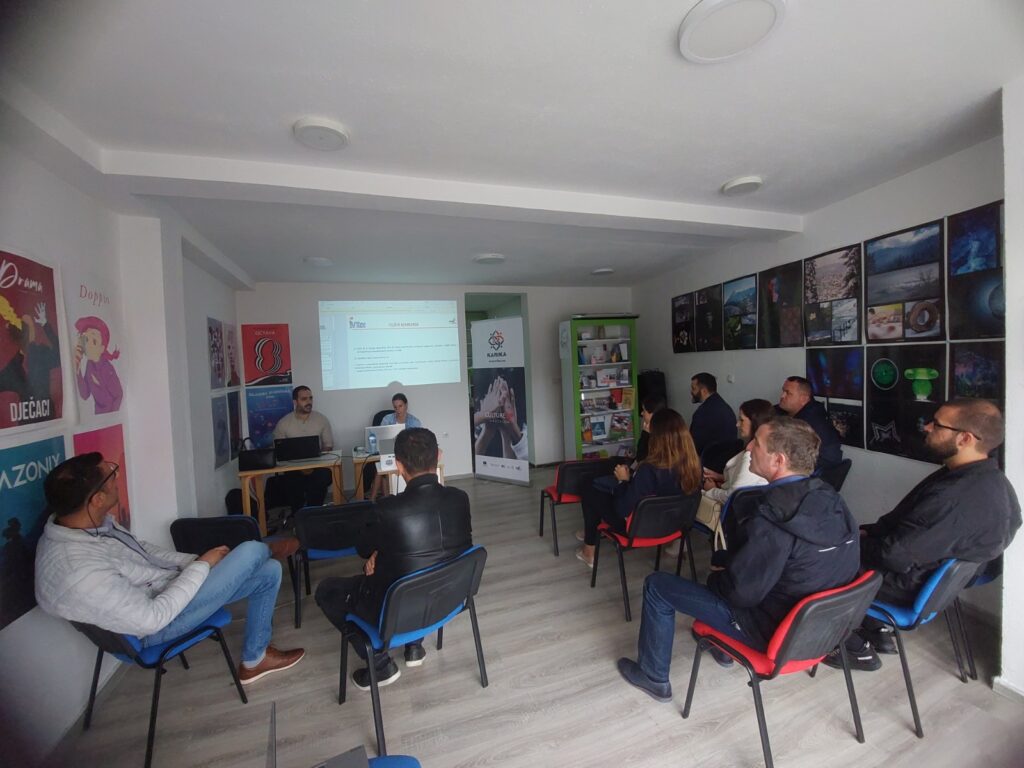Today, the Centre for Civic Education (CCE) organized an info session in Rožaje, in the premises of the NGO Karika, presenting the details of the III call for proposals for projects of civil society organizations (CSO) within the project ‘’CSOs in Montenegro – from basic services to policy shaping -M’BASE”.
Petar Đukanović, programme director of the CCE, explained the objectives, criteria and eligible themes of the Call that should be a response to the challenges in important areas for the process of Montenegro’s EU integration, as well as financial aspects, rules and the procedure for evaluating and ranking project proposals.
Details about the financial aspect presented Maja Perovanović, financial assistant.
The info session was attended by representatives of non-governmental organizations from the north of Montenegro.
This call is aimed at direct assistance to the CSOs to participate in the Europeanization and democratization of society through financial support to their projects, strengthening their capacity to successfully implement these activities following EU rules and providing continuous mentoring throughout projects. For the CSOs that will be supported, a comprehensive program of capacity building in project management and visibility of project activities, as well as monitoring of public institutions, it is prepared.
A total amount of EUR 550,000 will be allocated through the third Call for Proposals, and support for individual projects, within three categories, will range from a minimum of 10,000 EUR to a maximum of 60,000 EUR.
The next info session will be held in Cetinje on 22 September 2022.
The project CSOs in Montenegro – from basic services to policy shaping – M’BASE is implemented by the Centre for Civic Education (CCE), in partnership with the German Friedrich Ebert Stiftung (FES), NGO Center for the Protection and Research of Birds (CZIP) and NGO Politikon Network, in cooperation with the Ministry of Public Administration and Ministry of European Affairs of the Government of Montenegro. The project is financed by the European Union and co-financed by the Ministry of Public Administration.
Monika Mrnjačević, project associate

